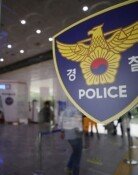Special Safeguards on 30 Key Sensitive Farm Products
Special Safeguards on 30 Key Sensitive Farm Products
Posted May. 26, 2007 03:38,
Korea can impose high tariffs on 30 U.S. imports, including beef, pork, and apples, when their trade volume exceeds certain levels once the FTA between the two countries comes into effect.
In addition, someone who is caught recording films with camcorders in theaters can be punished, and problems caused by dumping issues will be settled by the World Trade Organization (WTO), not by a bilateral organization.
The Korean government disclosed the 2,700-page text of the FTA agreement in both English and Korean to the public on the websites of seven government agencies, including the Ministry of Foreign Affairs and Trade (MOFAT) and of the Ministry of Finance and Economy yesterday.
The text says that when imports of beef, pork, apples, onions and ginseng rise above a certain level, special safeguards will be activated for additional import tariffs.
In the sector of intellectual property rights, Korea accepted U.S. demands and agreed to amend its intellectual property rights law so that it can punish those who record films for the purpose of illegal copying. Also, the two parties agreed to settle trade disputes by a bilateral organization, which will be established, but to bring anti-dumping issues to the WTO.
Kim Jong-hoon, Seoul`s chief negotiator, said that, Minor changes can be made through legal review before the two countries sign the agreement on June 30, in a news conference held in the MOFAT building in Jongno, Seoul.
Meanwhile, presidential spokesman Cheon Ho-seon said that, There will be no renegotiations of the trade deal, which could break the current balance.
After releasing the document of the KORUS FTA on May 24 (U.S. time), the United States Trade Representative (USTR) said that the U.S. wants to work together with Korea to reflect new trade policies" adopted by the Bush administration and Congress to make the U.S. commitment to additional negotiations official.
U.S. Trade Representative Susan Schwab said in a statement that, The document of the agreement released today does not include items on several issues such as labor and environment, which the administration and Congress came up with.
In the meantime, President Bush chose the bilateral trade pact with Korea as one of the trade bills he would like to see concluded successfully in a press conference on overall state affairs in Washington yesterday.







